Eco-feminism in Barbara Kingsolver’s Prodigal Summer
Barbara Kingsolver’s novel Prodigal Summer is a deep exploration of interrelated themes such as ecology, feminism, and human relationships, making it an ideal body of work for studying eco-feminism. Eco-feminism, a theoretical paradigm that links ecological exploitation to women’s oppression, emphasizes how patriarchal structures control both the environment and marginalized people. Kingsolver decodes eco-feminism through her characters, narrative structure, and thematic themes, emphasizing the symbiotic relationship between humans and nature and drawing parallels between women’s oppression and environmental exploitation.
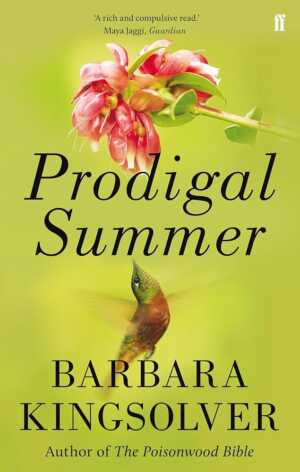
What is Eco-feminism?
Eco-feminism is a philosophical and political movement that views the exploitation of women and nature as interconnected phenomena. It argues that the same structures that oppress women—patriarchy, capitalism, and colonialism—also exploit the environment. Eco-feminists call for a holistic and nurturing approach to the Earth, emphasizing care, cooperation, and respect for the natural world as opposed to dominion and control.
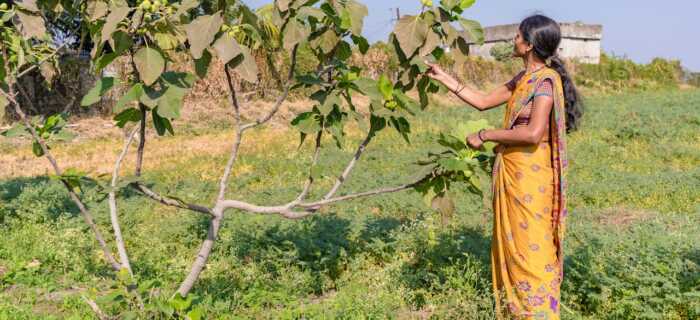
In Prodigal Summer, Kingsolver uses eco-feminism to challenge traditional hierarchies by focusing on the lives of the four main characters – Deanna Wolfe, Lusa Landowski, Garnett Walker, and Nannie Rawley – each being intricately connected to nature in unique ways.
The Main Characters
Deanna Wolfe – The Wild Woman
Deanna Wolfe, a reclusive wildlife biologist, embodies the ecofeminist archetype of the “wild woman.” She lives in the Appalachian Mountains, studying coyotes and defending their right to exist despite human encroachment. Her character symbolizes the rejection of patriarchal norms that seek to control both women and nature.
Deanna’s intimate relationship with the land parallels her sensual relationship with Eddie Bondo, a hunter. Their contrasting views – Deanna’s protection of predators versus Eddie’s desire to hunt them highlight the tension between nurturing and dominating the natural world.
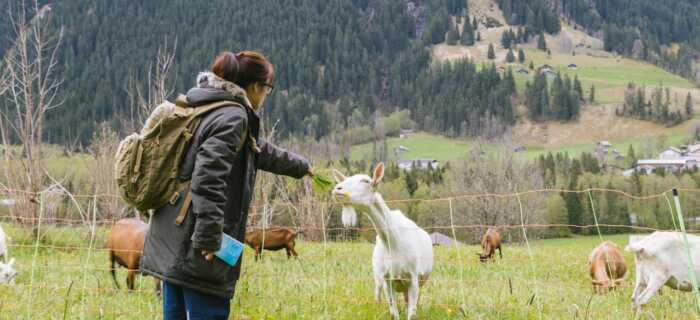
Deanna’s story exemplifies eco-feminism’s view that nature is a living system that should be appreciated rather than an enemy that should be vanquished. Her comprehension of the coyotes’ ecological role highlights the necessity of coexistence and the symbiotic ties seen in nature, which are comparable to human interdependence.
Lusa Landowski – The Earthbound Widow
Lusa Landowski, a young widow of Polish-Jewish descent, navigates the cultural and agricultural challenges of rural Appalachia. Her journey from outsider to a farmer who integrates sustainable practices reflects eco-feminism’s call for blending traditional knowledge with ecological stewardship. Lusa’s transformation embodies resilience and adaptability, traits often undervalued in patriarchal systems.
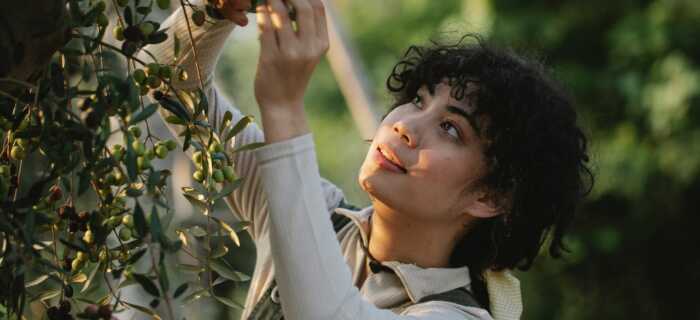
Her commitment to organic farming methods and her decision to raise goats instead of the traditional cash crops represent a rejection of industrial agriculture’s exploitative practices. Lusa’s narrative underscores the eco-feminist ideal of working in harmony with the land rather than exploiting it for profit, echoing the maternal care associated with both nurturing the land and protecting future generations.
Garnett Walker – The Patriarch’s Evolution Garnett Walker
He represents the older patriarchal mindset – that of clinging to the idea of human dominion over nature. His obsession with reviving the American chestnut tree symbolizes a desire to control and restore nature according to human will. However, his relationship with his neighbor Nannie Rawley, a fiercely independent organic farmer, forces Garnett to confront his rigid beliefs.
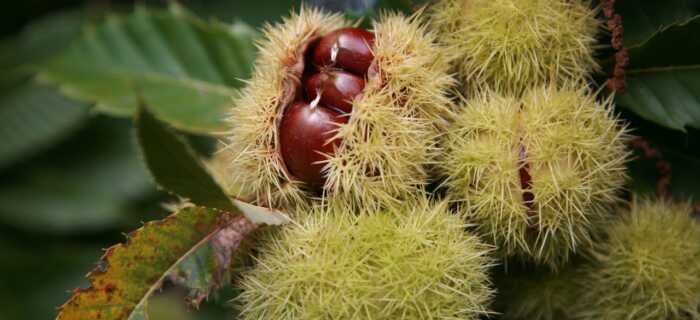
Their dynamic interaction serves as a microcosm of the larger dialogue between eco-feminism and patriarchy. Nannie’s insistence on organic practices and Garnett’s gradual softening reflect the potential for transformation through dialogue and understanding. Garnett’s evolution illustrates that even deeply entrenched patriarchal mindsets can be reshaped by ecofeminist values of respect, collaboration, and humility.
Nannie Rawley: The Strong-willed Orchardist
Nannie Rawley is an important character in Barbara Kingsolver’s Prodigal Summer. She is an elderly and independent orchardist who lives in the novel’s rural Appalachian setting. Nannie epitomizes a combination of wisdom, environmental advocacy, and natural charm. She is a fervent believer in organic farming and natural ways, as opposed to the industrial agriculture tactics portrayed by the other characters.
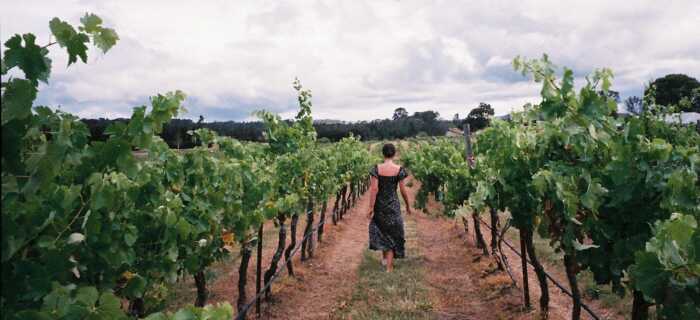
Nannie is closely connected to Lusa Landowski, one of the main protagonists, and provides both friendship and guidance. Her character represents themes found in the novel – ecological stewardship, interconnectedness, and the cyclical nature of life. Nannie’s dedication to the land and her gentle defiance of conventional norms highlight Kingsolver’s exploration of sustainability, resilience, and the deep bonds between humans and the natural world.
Interconnectedness of Life
Kingsolver’s Prodigal Summer emphasizes that all forms of life are somehow connected; this is a key tenet of eco-feminism. With its three narratives that are closely connected, the novel’s structure mirrors the ecological web where every species plays an important role. Kingsolver portrays the natural cycles of birth, death, and regeneration as inherently linked to human experience, illustrating how human lives are inextricably bound to the health of the environment.

The novel tries to dispel the dualistic thinking that separates nature from humans, female from male, and wilderness from culture. By blurring these boundaries, Kingsolver invites readers to reconsider the notion of dominance and embrace an ethic of reciprocity and care.
Nature as a Counterpoint to Patriarchy
One of the most intriguing features of Prodigal Summer is Kingsolver’s use of nature to challenge patriarchy. The ecosystems she portrays, whether it is the coyotes Deanna guards or the symbiotic interactions between species, do not have strict hierarchies. Nature prioritizes collaboration and balance above domination and control. This is in stark contrast to patriarchal organizations, which stress power and competitiveness.

Kingsolver’s depiction of nature provides a different paradigm for human relationships, one that prioritizes reciprocity, interdependence, and respect above dominance. Deanna’s admiration for coyotes, who are frequently hated by humans, represents her rejection of the patriarchal ideology that seeks control and subjugation. Instead, she takes a more egalitarian stance, acknowledging the inherent worth of all living things.
Eco-feminism is vividly explored in Barbara Kingsolver’s Prodigal Summer. The book shows how the freedom of women and other oppressed people is closely linked to a healthy environment. By depicting interrelated lives, challenging patriarchal ideals, and celebrating ecological wisdom, Kingsolver deconstructs eco-feminism in a way that is both profound and understandable. The book reminds readers that in order to heal the world, repressive structures must be overthrown and a more sustainable, inclusive outlook on human life must be adopted.
What do you think? Leave a comment.











As an environmental biology student, I was struck by her attention to ecological detail, particularly in her depiction of the coyotes’ role in balancing ecosystems.
I loved this book. It had a lot of emotional resonance and strong female characters, which I always appreciate in a book. It was especially satisfying reading it right after American Rust, which I also loved.
Like a love letter to nature!
This book was beyond boring. Even the sex was utterly boring. She hammers her opinions into the reader until he is black and blue. I didn’t give a dam about the characters. My advice? When you try a new author spend some time choosing a book that could possibly intrigue you, otherwise if you hate it you will never try any other of the author’s books. All the books of a good author are not necessarily good. I will give her the benefit of my doubt, but I personally will not read another by Kingsolver. No way!
It is like the indigenous concept of the “web of life,” where everything is interconnected. Kingsolver’s insistence on breaking down dualistic thinking mirrors Robin Wall Kimmerer’s work in Braiding Sweetgrass.
Yeah. What struck me most is how Kingsolver subtly weaves these ideas into the lives of her characters, challenging the patriarchal notions of dominance and control.
Lusa’s whole farm thing is inspiring. I can’t even keep a house plant alive.
Kingsolver is awesome, but I kinda don’t get why Garnett is so stubborn. Nannie’s obviously right about the organic farming thing! Why can’t old people just listen to new ideas? If he had been more chill, the tree thing could’ve worked out better, lol. But I guess it’s cool he learned a little.
Kingsolver’s portrayal of interconnected lives in Prodigal Summer is a beautiful microcosm of eco-feminist ideals, but what stands out is her nuanced depiction of Garnett Walker. His evolution is particularly significant in the context of intergenerational dialogue about environmentalism. It made me think of Wendell Berry’s essays, which also explore the tension between old farming practices and modern ecological needs. Kingsolver’s depiction of Garnett’s gradual acceptance of organic farming mirrors Berry’s call for humility in understanding nature’s complexities. This parallel suggests that eco-feminism isn’t just about dismantling patriarchy but also about building bridges to change entrenched mindsets.
Deanna Wolfe’s “wild woman” archetype is compelling, but her relationship with Eddie Bondo felt like a metaphor that could have been explored more deeply.
I wonder how these eco-feminist themes could be expanded to address global environmental crises, particularly in non-Western contexts.
Kingsolver’s exploration of Deanna as a wild woman is intriguing, but as a teenager reading this, I couldn’t help but feel like Eddie’s perspective wasn’t fleshed out enough. Like, why does he hunt? Is it just for fun or survival or what? I know we’re supposed to root for Deanna and the coyotes, but maybe Eddie’s side could teach something too. Not saying hunting’s cool or anything, but balance is important, right?
This book makes me wanna go outside and hug a tree or something, lol.
Her work could be analyzed through the lens of Donna Haraway’s Cyborg Manifesto, particularly in its rejection of rigid categories. The blending of human and natural lives in Prodigal Summer resonates with Haraway’s call for hybridization and the dissolution of dualisms.
I love all of Barbara Kingsolver’s work, but this book takes my breath away.
Anyone in horticulture will especially find some extra satisfaction in this read.
This was possibly one of the worst and most painful reading experiences EVER. What the heck was this book?
I admired her rich and lyrical writing style. I grew up in the country and took many long walks with my parents through the woods, and boy did this book make me want to shove my feet into some hiking boots!
I love the title of the book. Sold. 🙂
The book author’s depiction of interconnected ecosystems resonates with the Gaia hypothesis, which views Earth as a self-regulating organism.
Deanna and Eddie’s relationship is majorly confusing. She’s all about saving nature and stuff, and he’s out there hunting? What even? But I guess that’s the point, right? To show how people are complicated?
Deanna is a total queen! She’s out there in the wild by herself.
As a scholar of eco-criticism, I find Kingsolver’s deconstruction of dualistic thinking particularly compelling. By rejecting the binary oppositions of male/female, culture/nature, and dominance/submission, Kingsolver aligns herself with the postmodern eco-feminist critique of hierarchical structures.
The book is good and all, but, did anyone else feel like the ending wasn’t that clear? Did Garnett really change his mind about nature, or was he just being polite to Nannie? IDK, but I guess Kingsolver wanted us to figure it out ourselves.
Deanna is such a mood. She’s just out there doing her thing and doesn’t care what people think.
I didn’t love Eddie. He’s not a bad guy, but he kinda represents all the stuff Deanna’s trying to fight against, right?
It’s one of those books that you’re upset when you’ve reached the end.
Kingsolver doesn’t hit you over the head with her message; she lures you with parallel tales of people living lives that happen to involve nature more intimately than most of us.
This was the right book to read while I was alone for a week in the Blue Ridge mountains.
i cannot even describe how much i love these characters.
Wonderful book for reading in the summer when all the world seems to be blooming.
The audio book version is really good, I recommend it!
I found that her descriptions were repetitious and overly lengthy.
I loved this article and read the book. I can’t wait to read everything and anything else she’s written.
This book gave me a new appreciation for coyotes.
This novel captured all my heart.
Despite the fact that Kingsolver would seem to be a perfect author for me, I have never read any of her books, and I am unsure whether this one well represents her style.
Barbara Kingsolver is definitely one of my new favourite authors. Not only can she write, she’s a good audio book narrator as well!
I first read this book twenty summers ago after my divorce. It sustained me then through a very difficult week. Can’t wait to read it again.
Great analysis. I’ll pick up the book for sure.
I didn’t know much about ecofeminism before, so this article was super helpful. It’s fascinating how Kingsolver ties ecology and feminism together. It makes nature feel both personal and political. Definitely gave me a lot to think about…
Romanticizing nature and feminism is every thing I wish to see, this just makes me want to start up a garden so I act like I’m in a fairytale movie!
This article reminds us that as human beings we are part of nature and we should strive to take of it; taking care of nature is another form of self-love. Thank you for this wonderfully written article